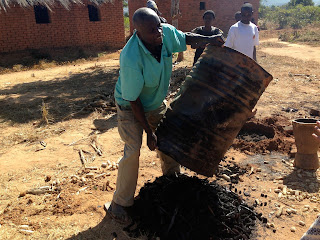What if your worth was measured by your ability to wash clothes by hand, collect and carry bundles of firewood on foot heavy , balance water buckets on your head, or carry a child in your womb, near your chest, or on your back?
This article was published here...(also you can read about what my site mate, Mark Gestwicki, is doing)
www.enterprisenews.com/
Malawian girls and women work very hard. They toil until their hands and feet become so calloused it almost doesn’t matter that they’re unable to afford suitable shoes. But their hearts appear to be far less calloused than our own. They are resilient and strong, working tirelessly to provide for their families on what little they have. As Peace Corps Volunteers we recognize the work they do and we want to be part of a better future for the young women of the next generation. Our goal is to partner with them to achieve substantial lives bringing them far beyond lives of merely subsistence.
Camp GLOW (Girls Leading Our World) is a Peace Corps sponsored girl's empowerment camp to address the gender inequality. This year, we invited 66 young women selected from secondary schools across Malawi to attend the 10th annual weeklong camp. We have also invited many strong professional Malawian women to join us. Our aim is to empower these young women to become active and engaged citizens.
The Peace Corps has worked since 2003 with Malawian partners to organize this yearly event. Through self-awareness, self-expression and self-confidence, we feel campers can become Malawi's future leaders.
Camp GLOW supports young women as they endeavor to take charge of their futures, their choices, their bodies, and their heritage. We will help them through a variety of activities to develop assertiveness, set goals, and plan their future careers and lives. Beyond empowerment, Camp GLOW promotes health education specifically focusing on HIV/AIDS, malaria prevention, safe motherhood, nutrition, and overall healthy lifestyles.
We are excited that the professional women along with the 15 Peace Corps volunteers will lead sessions and discuss issues that impact the people of Malawi. Our entire staff believes camp attendees will dream of a Malawi which they can change because they are active, engaged, strong, and confident. They will find their worth far beyond menial tasks by becoming future leaders who are valuable for tomorrow's Malawi. We can see their strength and we hope their vision can become brighter.
This article was published here...(also you can read about what my site mate, Mark Gestwicki, is doing)
www.enterprisenews.com/





